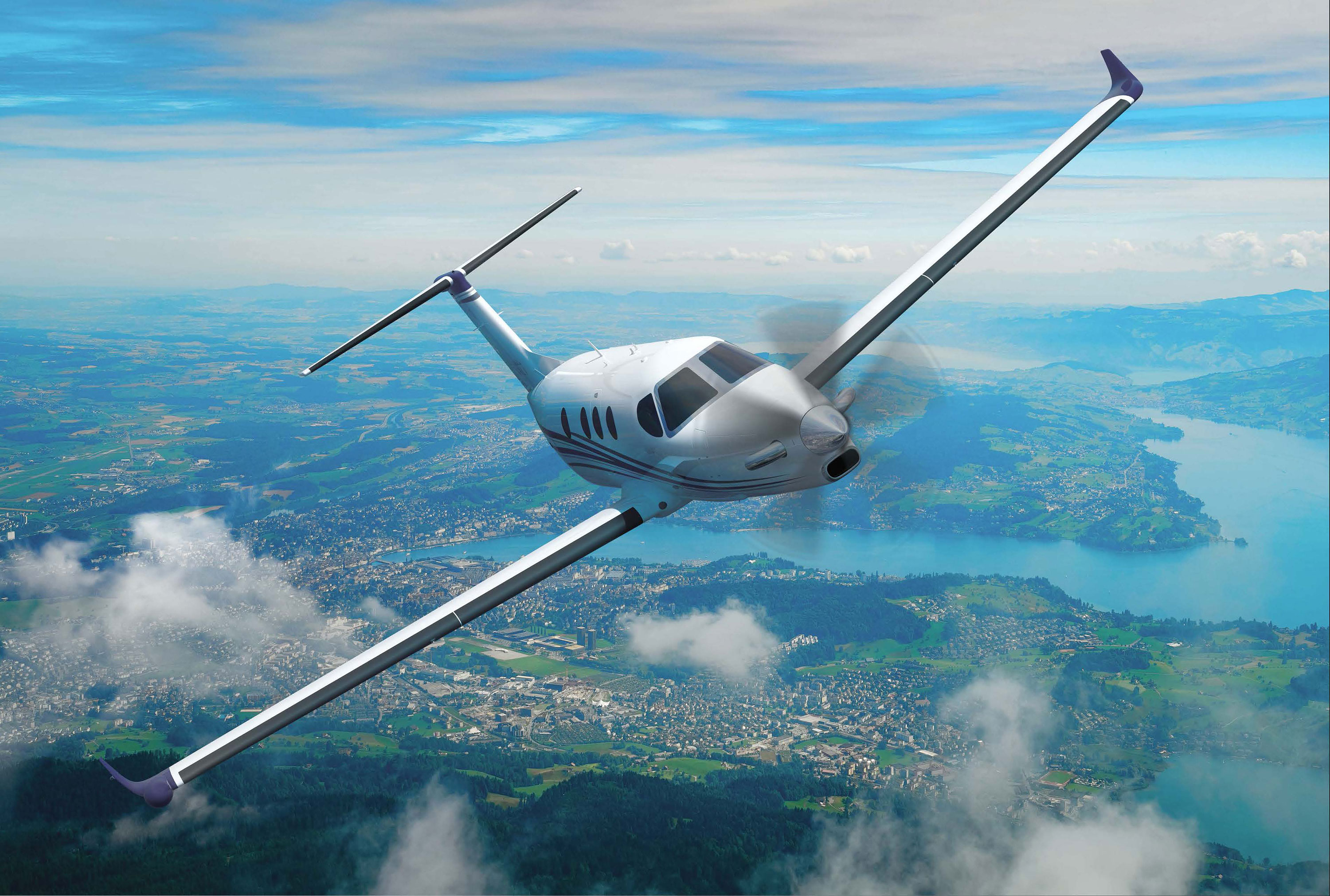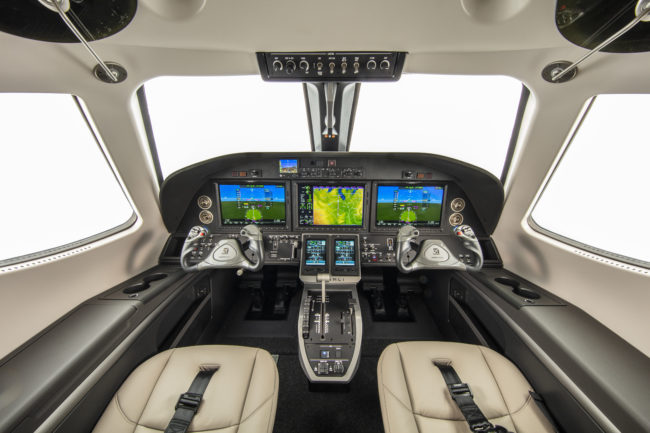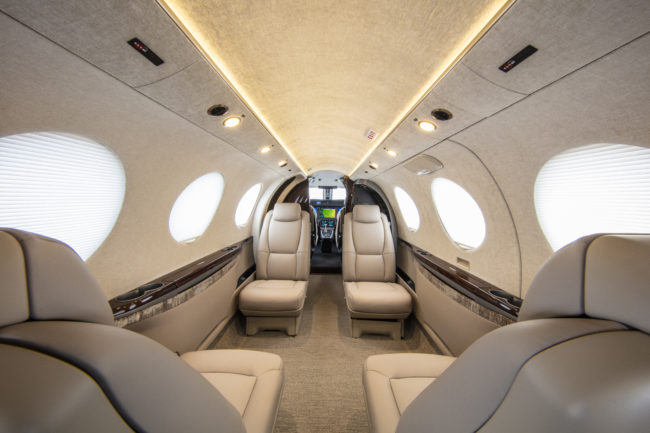

WICHITA, Kan. (July 20, 2018) – Textron Aviation, a Textron Inc. (NYSE:TXT) company, today announced it will unveil its new full-scale Cessna Denali mockup at EAA AirVenture 2018 in Oshkosh, Wisconsin July 23-29 at Wittman Regional Airport. The mockup features a complete cockpit with functioning avionics, fully updated interior and the McCauley 105-inch diameter composite, five-blade, constant speed propeller.

“We have made great strides in the design and development of the Denali,” said Rob Scholl, senior vice president, Sales and Marketing. “Since first introducing the aircraft at EAA AirVenture in 2015 — and unveiling the initial cabin concept in 2016 — we have fine-tuned the Denali’s characteristics based upon feedback gathered from our customer base and look forward to delivering a best in class experience for pilots and passengers alike.”
The turboprop features the widest cabin cross-section in the segment, providing passengers with additional head and shoulder room — and more room for cargo and baggage. Taking cues from design elements found in Textron Aviation’s large-cabin business jets, Denali delivers a new standard of luxury to turboprop passengers. Features such as larger seats and windows, as well as a modular refreshment center and an aft-located lavatory ensure passengers enjoy an enhanced level of comfort on board. During the show, demonstrations of the Denali’s highly adaptable cabin will highlight its abundant space and transform the cabin from an executive configuration to a combi layout – configured for both passengers and cargo.

“The mockup presents the first opportunity for customers to experience the full power of the Denali cockpit — one that revolutionizes the single engine turboprop segment,” Scholl noted. “The Catalyst engine, developed by GE Aviation, is the segment’s first powerplant with FADEC (Full Authority Digital Engine Control), equipping pilots with a digitally optimized single-lever engine and propeller control for ease of handling in flight. The Garmin G3000 flight deck modernizes turboprop avionics and significantly reduces pilot workload with dual touchscreen controllers and Automatic Speech Recognition (ASR) technology, enabling pilots to easily perform common tasks and manage the flight deck. Not one detail has been overlooked and the new Denali mockup is a true representation of the aircraft we will deliver to customers.”
The Cessna Denali program continues to progress on schedule. The company anticipates achieving the first wing mate and completion of the prototype airframes as the program nears first flight in early 2019.
About the Denali
Engineered to achieve cruise speeds of 285 knots and full fuel payload of 1,100 pounds, the Denali will have a range of 1,600 nautical miles at high-speed cruise with one pilot and four passengers and will be able to fly nonstop from Los Angeles to Chicago, New York to Miami or London to Moscow.
A first for aircraft in this class, the FADEC-equipped, 1,240 shaft horse-power GE Catalyst engine will ease pilot workload with its fully automated single-lever power and propeller control. Equipped with McCauley’s new 105-inch diameter composite, 5-blade, constant speed propeller, Denali’s engine features full feathering with reversible pitch and ice protection. Additionally, the engine design delivers an initial 4,000-hour time between overhaul and offers class-leading performance retention for an outstanding hot/high capability.
The Denali features the Garmin G3000 intuitive touchscreen avionics suite and includes three large high-resolution displays with split-screen capability. The G3000 flight deck’s solid-state weather radar, advanced Terrain Awareness Warning Systems (TAWS) and automatic dependent surveillance-broadcast (ADS-B) capabilities ensure compliance with the FAA’s NexGen air traffic control requirements.
Featuring the largest flat floor cabin in its segment, Denali’s design easily converts between passenger and cargo configurations. The executive seating configuration accommodates six individual reclining seats, club-configuration tables and a refreshment unit while the commuter seating layout enables nine individual forward facing seats. Additionally, the aircraft boasts a digital pressurization system maintaining a class-leading 6,130-foot cabin altitude at a service ceiling of 31,000 feet.
First in this class of aircraft, the Denali equips customers with an optional, externally serviceable belted lavatory with pocket door enclosure located in the back of the cabin. Denali customers will also enjoy very large cabin windows, interior LED lighting, a forward refreshment cabinet and an in-flight accessible baggage compartment.
Denali customers will have access to Textron Aviation’s unmatched global support network. Dedicated to complete life-cycle support, the company staffs its factory-direct service centers with expert service engineers offering maintenance, inspections, parts, repairs, avionic upgrades, equipment installations, refurbishments and other specialized services. Textron Aviation also offers a mobile support program featuring more than 60 mobile service units, a fleet of rapid-response support aircraft, and on-site service technicians and support.
